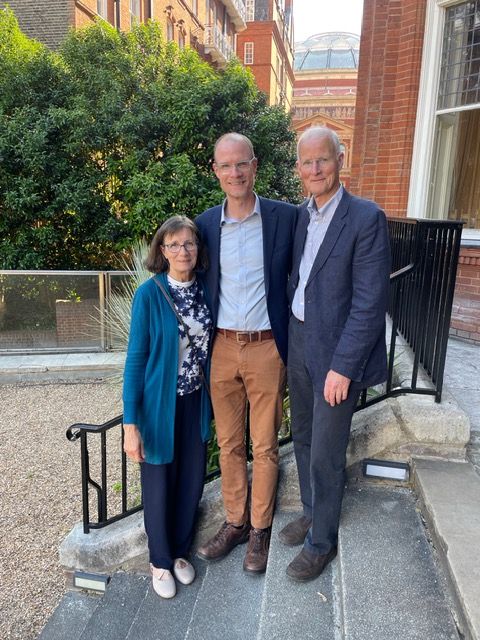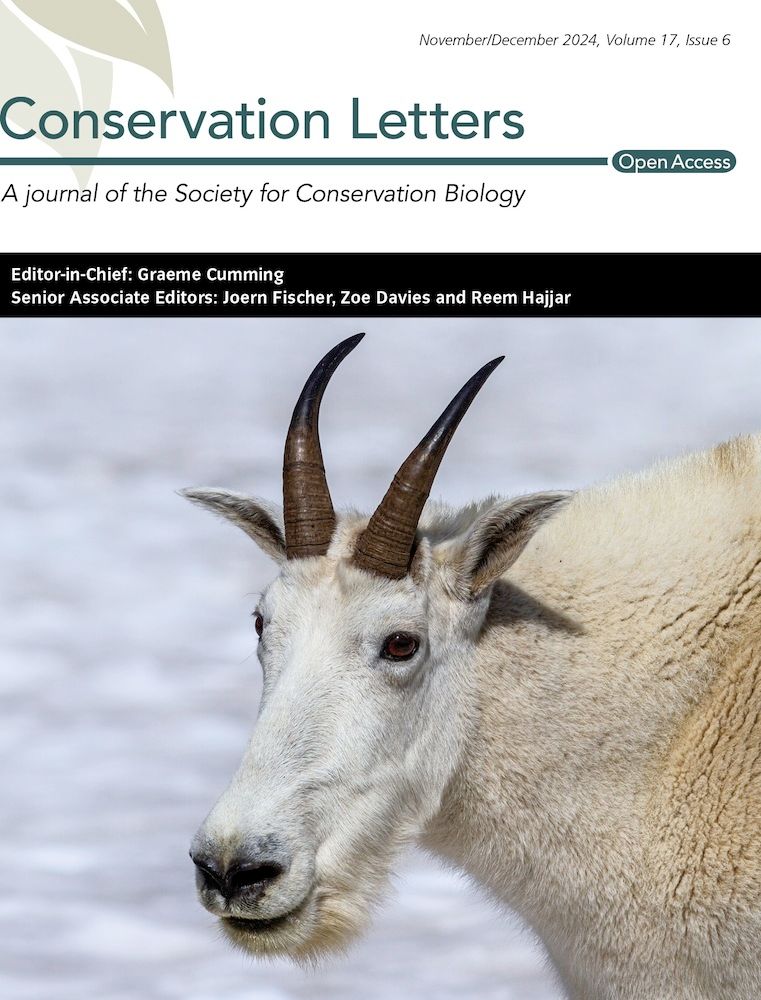Chris Sandbrook
@csandbrook.bsky.social
Professor of Conservation & Society and Director of the MPhil in Conservation Leadership at the University of Cambridge
The speeches were amazing - particularly from Dariusz Wójcik and Susan Smith, who both reminded me of why I love geography.
A particular thank you to my parents - Bud and Martin Sandbrook - who were there on the day. It was very special to share the moment with them.
A particular thank you to my parents - Bud and Martin Sandbrook - who were there on the day. It was very special to share the moment with them.

June 5, 2025 at 1:52 PM
The speeches were amazing - particularly from Dariusz Wójcik and Susan Smith, who both reminded me of why I love geography.
A particular thank you to my parents - Bud and Martin Sandbrook - who were there on the day. It was very special to share the moment with them.
A particular thank you to my parents - Bud and Martin Sandbrook - who were there on the day. It was very special to share the moment with them.
Does your gpt account know your name Nix? If so it may have found your article and joined some dots
February 9, 2025 at 9:15 AM
Does your gpt account know your name Nix? If so it may have found your article and joined some dots
Reposted by Chris Sandbrook
This paper by @csandbrook.bsky.social also provides a thoughtful review of the uses and abuses of #AI in #conservation: "arguing that to date there has been too much techno-optimism and a lack of attention to risks and broader implications".
conbio.onlinelibrary.wiley.com/doi/10.1111/...
conbio.onlinelibrary.wiley.com/doi/10.1111/...

Beyond the Hype: Navigating the Conservation Implications of Artificial Intelligence
Conservation AI—the deliberate application of artificial intelligence technology to achieve conservation goals—has great potential to boost productivity, make existing conservation actions more effic...
conbio.onlinelibrary.wiley.com
December 29, 2024 at 5:18 PM
This paper by @csandbrook.bsky.social also provides a thoughtful review of the uses and abuses of #AI in #conservation: "arguing that to date there has been too much techno-optimism and a lack of attention to risks and broader implications".
conbio.onlinelibrary.wiley.com/doi/10.1111/...
conbio.onlinelibrary.wiley.com/doi/10.1111/...
I'm not sure what you mean? I've never worked at Kahuzi-Biega, or had anything to do with Paul Kagame.
December 10, 2024 at 10:26 AM
I'm not sure what you mean? I've never worked at Kahuzi-Biega, or had anything to do with Paul Kagame.
I could say the same to you - congrats on the SCB papers!
November 28, 2024 at 10:15 AM
I could say the same to you - congrats on the SCB papers!
Lastly, I want to congratulate Trishant for his outstanding research. Supervising his PhD was an absolute pleasure, and I am so delighted that his work is now getting the wider recognition it deserves. 🥳
November 27, 2024 at 11:45 PM
Lastly, I want to congratulate Trishant for his outstanding research. Supervising his PhD was an absolute pleasure, and I am so delighted that his work is now getting the wider recognition it deserves. 🥳
This paper has attracted a lot of media attention in India, with some sensationalist headlines. I hope that it will trigger sensible debate about when and how to use conservation monitoring technology. It is intended to be critical yet constructive, and I hope the coverage will reflect that.
November 27, 2024 at 11:45 PM
This paper has attracted a lot of media attention in India, with some sensationalist headlines. I hope that it will trigger sensible debate about when and how to use conservation monitoring technology. It is intended to be critical yet constructive, and I hope the coverage will reflect that.
I hope that the conservation sector will take this seriously and adopt our principles for the socially responsible use of conservation monitoring technology and data. This is becoming ever more urgent as AI drives a massive increase in monitoring. conbio.onlinelibrary.wiley.com/doi/full/10....
November 27, 2024 at 11:45 PM
I hope that the conservation sector will take this seriously and adopt our principles for the socially responsible use of conservation monitoring technology and data. This is becoming ever more urgent as AI drives a massive increase in monitoring. conbio.onlinelibrary.wiley.com/doi/full/10....
This work demonstrates that surveillance technologies like camera traps really can create various forms of harm for particular groups of people – in this case women – even where in theory they were only supposed to be monitoring wildlife.
November 27, 2024 at 11:45 PM
This work demonstrates that surveillance technologies like camera traps really can create various forms of harm for particular groups of people – in this case women – even where in theory they were only supposed to be monitoring wildlife.
The cameras extended the male gaze into the forest, stopping women singing and changing the way they dressed and spoke. In one case there was sexual harassment when an image of a woman was circulated by men on their phones. An example is shown in the illustration above, by Adwait Pawar.
November 27, 2024 at 11:45 PM
The cameras extended the male gaze into the forest, stopping women singing and changing the way they dressed and spoke. In one case there was sexual harassment when an image of a woman was circulated by men on their phones. An example is shown in the illustration above, by Adwait Pawar.
It is therefore a big moment that the first paper from @trishantsimlai.bsky.social's PhD is now published, in Environment and Planning F. It shows how camera traps used for wildlife monitoring in a forest changed the way women used the space. journals.sagepub.com/doi/full/10....
November 27, 2024 at 11:45 PM
It is therefore a big moment that the first paper from @trishantsimlai.bsky.social's PhD is now published, in Environment and Planning F. It shows how camera traps used for wildlife monitoring in a forest changed the way women used the space. journals.sagepub.com/doi/full/10....
For more than a decade various authors, including me, have been raising this problem. It has been explored extensively in theory, but there have been hardly any published studies that look at these issues using real world empirical case studies.
November 27, 2024 at 11:45 PM
For more than a decade various authors, including me, have been raising this problem. It has been explored extensively in theory, but there have been hardly any published studies that look at these issues using real world empirical case studies.

